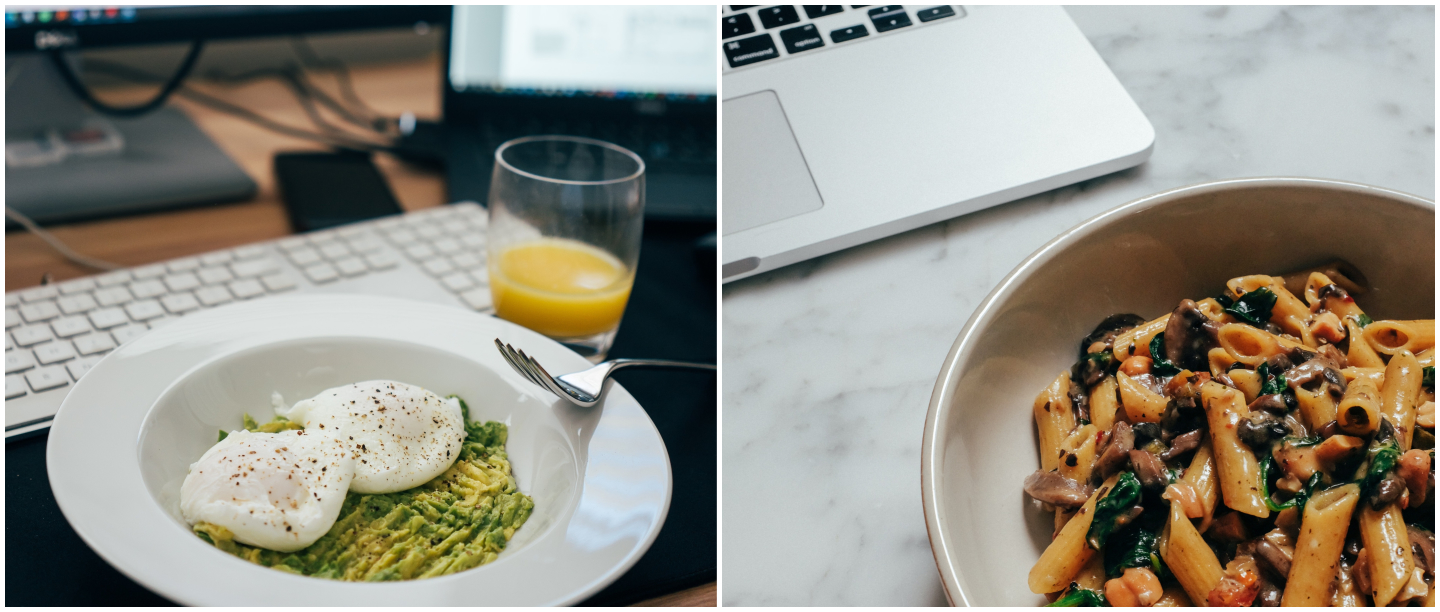I don’t know about you, but ever since the pandemic forced us to work from home, my snack supply has been dwindling swiftly. Social distancing is bringing an unprecedented sameness in our lives. Boredom is increasing by the day and what’s better than food to beat this weariness of this daily routine. And that’s why my kitchen entices me a lot during all my short breaks from work. I head to the kitchen, pick up a packet of chips thinking to have just two or three and the next thing I know, there’s nothing left in the packet. If this situation is all too familiar, then you, my friend, are snacking mindlessly. And just like me, you are also wondering how to avoid this unnecessary snacking.
So to find a solution to our problem, I spoke to experts. And believe you me, they offered a few easy solutions. No, they’re not asking us to stop snacking altogether (that would be evil)!
How To Stop Snacking Mindlessly?

Unsplash
Raksha Lulla, a lifestyle and nutrition expert says, unnecessary snacking only comes from three outlets–screen time, dehydration & lack of mindfulness. Practising intentional eating is easier said than done. But, she says, you can curb mindless eating with some practice. Here are some practical tips:
Are you hungry or dehydrated?

Unsplash
“People love to mistake a water call for hunger. As soon as there is some signal, we feed ourselves–we don’t even ask ourselves that am I hungry or just thirsty? The simple solution to this is to practice sipping constantly throughout the day. This helps you stay hydrated and avoid excessive snacking,” says Raksha.
Don’t Multitask When You’re Eating

Unsplash
Switch off that Netflix show and focus on what you’re eating. C’mon, it’s food and it sure deserves all your attention. “Avoiding any distractions like watching TV or web shoes, working on the computer, using the phone while snacking helps you eat as much as you need. If you’re distracted, you don’t give yourself the opportunity to decide if you’re actually hungry, or to realise when we’ve had enough to eat,” said Dr. Anupa Mohanty, Dietician & Nutritionist.
Practice mindful eating
More commonly referred to as emotional eating, here’s how this one goes: Nothing to do=reaching for snacks, feeling weird=eating ice cream from the tub, celebrations=happy eating, achievement=desserts as rewards. When you eat food to replace your feeling, you get a dopamine surge in your brain and thus you feel good. Then, it becomes a habit. Every time you feel a little under-appreciated, you will grab that packet of chips to get that dopamine jolt. “Practice mindfulness by maintaining a food journal. Journalling down what you eat throughout the day is super helpful! When you make a record of what you’re eating, make side notes on how you’re feeling and why are you eating, whether you’re hungry or is there some other reason. This will make you conscious of why, what, when and how are you eating your snacks and meals,” adds Raksha
Eat slowly
Slow down when you’re eating, that’s all you need to practice to control excessive snacking. “You can slow down your speed by trying a few tricks like using your less-dominant hand while eating snacks or keeping your snacks far from you so it’s a little difficult for you to reach them,” says Raksha. Eating slowly helps with slow digestion and gives your stomach time to indicate to your brain that you’re full.
Switch to healthier snacking options

Unsplash
Why do you eat a snack? Most people snack for an energy boost between meals. But not many know that eating the wrong snack results in worst hunger pangs and lesser the energy than you started with. So lay off these sneaky snacks and stock up on smarter options. Replace candies and chips with nuts. Candies make you feel even more hungry, but nuts help fills you up. For that extra crunch to your snack, roast these nuts and add minimum salt. YOu can replace packaged juice with real fruit, curd-based smoothies instead of water-based smoothies.
Happy non-snacking peeps!
Featured Image: Instagram



